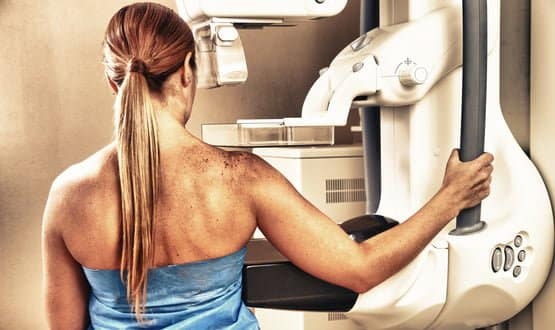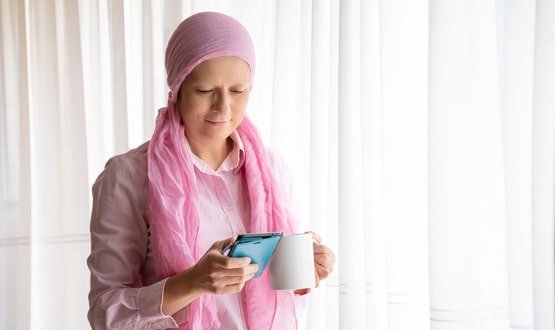Managing the UK’s ‘next big crisis’ of disrupted cancer care and diagnosis
- 20 August 2020

With a lot of medical care on hold during the coronavirus pandemic, Paul Landau, founder and CEO of digital cancer care company Careology, looks into how the UK’s ‘next big crisis’.
On the 23rd March, the UK government announced that lockdown measures to combat coronavirus would come into play, sparking concern for thousands of people living and dealing with cancer.
For some, their treatment continued as planned, for others changes were made such as switching to oral chemotherapy tablets. But many faced anxiety-inducing delays to operations and treatment. this was combined with a sharp decline in those who suspected they had cancer symptoms from seeking help, causing new referrals to fall by an estimated 70%.
Delays in diagnosis have huge implications and according to Clare Turnball, a professor of genomic medicine: “for some cancers, a three-month delay could make the difference between a tumour being curable or not.”
Treatment becomes more complex and invasive and its likelihood to succeed can fall significantly. In fact, research from The Institute of Cancer Research into survival rates of those with a cancer diagnosis states that, across all 94,912 patients who would have had surgery to remove their cancer over the course of the year, delays could lead to an additional 4,755 deaths.
The Covid-19 pandemic has already put overwhelming pressure on the NHS. Dealing with a deluge of new diagnoses once people are able to return to hospitals and managing a massive backlog of operations, is going to be a huge burden that could have devastating and long-term consequences.
Macmillan Cancer Support has voiced its concerns that ‘the combination of a build-up of those waiting for treatment, together with fewer people being seen for suspected cancer could result in a “ticking time-bomb of undiagnosed and untreated cancer.” And this is likely to compound if a second wave of coronavirus causes another spike in cases.
Technology’s role in preventing the ‘next big healthcare crisis’
The pandemic has acted as a catalyst in the healthcare sector, encouraging new ways of working, with many health professionals adapting to the use of technology.
Telehealth, for example, has soared in recent months as it helps to reduce the need for people to travel to a clinic, with in-person appointments being kept for more urgent or complex cases.
But now, as we witness perhaps a decade’s worth of healthtech innovation and adoption concentrated into a mere few months, new technologies and ways of care are coming to the fore.
Other technologies are being developed to help manage patients’ care. Questions about how clinicians will be able to determine which new cases need the most urgent attention without negatively impacting others are starting to be addressed. In the US, an innovative team of data scientists and doctors from the University of Michigan have developed an app which goes beyond traditional tiering systems. The software calculates the relative impact of delays in treatment due to coronavirus on individuals, taking into account the likely length of the delay, the person’s age, their underlying health conditions and the availability of resources in their community.
Cancer patients are suffering from increased levels of anxiety
Another difficulty that the pandemic has caused for those diagnosed with cancer is the worry that changing or pausing the delivery of treatment may affect its efficacy.
For those who are now taking oral chemotherapy at home, rather than it being administered by a clinician in a hospital, there is a significant onus around medication persistence and adherence now placed on them.
There is also the concern that more complex care will be needed down the line. This is having a huge impact on peoples’ mental health, with one in three calls to Macmillan’s helpline now from patients worried about the impact of Covid-19 on their care.
For those who aren’t diagnosed, anxiety is generated by holding themselves back from booking a GP appointment through fear of getting Covid-19 and being ‘a burden’ at a time when the service is already overstretched. However, this is a misnomer and it is critically important that people do make an appointment to diagnose symptoms so they can start treatment as early as possible if confirmed.
For people who likely already feel ostracised and vulnerable, a lack of support can have significant ramifications on their outlook. Particularly with the restrictions around seeing family and friends. The importance of this cannot be understated, and finding new ways – such as through digital services – to support those who need it the most is something that has yet to be leveraged fully. Being able to record how people are feeling emotionally as well as physically, whether it’s for their own personal documentation or information to share with their doctor and emergency contacts, is a growing necessity.
As lockdown measures start easing and the number of coronavirus cases falls, it is increasingly important that hospitals and clinics prepare for a deluge of new cancer cases, many diagnosed much further down the line than they would have been, and an influx of existing patients seeking medical attention, operations and care.
If the pandemic has taught us one thing, it must be that technology has developed and can now, more than ever, offer the support patients and doctors need to prevent more health crises. The more quickly it is implemented in the cancer care sector, the more lives it will help to save.




